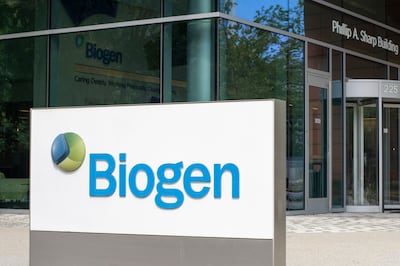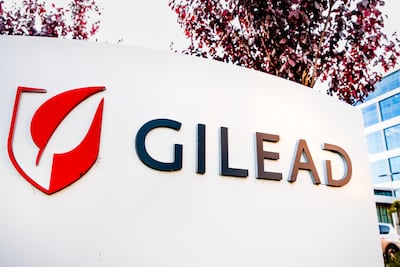Immunology
The multiple sclerosis portfolio will drag revenue down more than Biogen’s growth products will boost 2026 sales, but Phase III results in lupus and kidney disease could bring two new launches.
Scrip spoke with CMO Dietmar Berger about his views on diversifying Gilead’s virology, oncology and immunology R&D efforts through both in-house research and external innovation.
Sunshine Pharma plans to invest at least $14m to set up a joint venture with fellow Chinese firm XtalPi, with goals including the discovery and development of novel molecules for autoimmune disorders.
Biogen’s head of development reflects on transforming company strategy, surviving the Aduhelm crisis and building sustainable growth through disciplined portfolio management.
With more than $112m in new funding, the company plans further development of its Phase I IL23p19xTL1A-directed bispecific candidate.
In 2025, the number of global Phase III trials that included US sites and were initiated by Chinese biopharma companies as the sole sponsor fell slightly, but multiple plans are in the works for 2026 following US IND approvals.
The drugmaker announced positive topline results from its two Phase III trials of zasocitinib, a TYK2 inhibitor, in plaque psoriasis.
Clinical Data Readout: As a worldwide first mover, InnoCare’s BTK inhibitor orelabrutinib has hit its monotherapy primary endpoint of SRI-4 response rate at 48 weeks in a China-only Phase IIb trial in systemic lupus erythematosus.
With two late-stage lupus assets finishing recruitment and a newly acquired nephrology franchise running three concurrent Phase III programs, Biogen is making its most significant commitment yet to immunology beyond its legacy MS business.
The US FDA approved Uplizna (inebilizumab) for generalized myasthenia gravis, an increasingly crowded market. Amgen believes it can compete due to the CD19-targeting antibody’s durable efficacy with twice-yearly dosing.
Deal Snapshot: The biotech is joining forces with the Versant Ventures-backed startup, paying $50m upfront to apply its macrocycle peptide platform to immunological diseases.
Approval of Gobivaz across the 30-country EEA introduces long-awaited competition to Simponi, though the partners have yet to confirm a commercial launch date.











